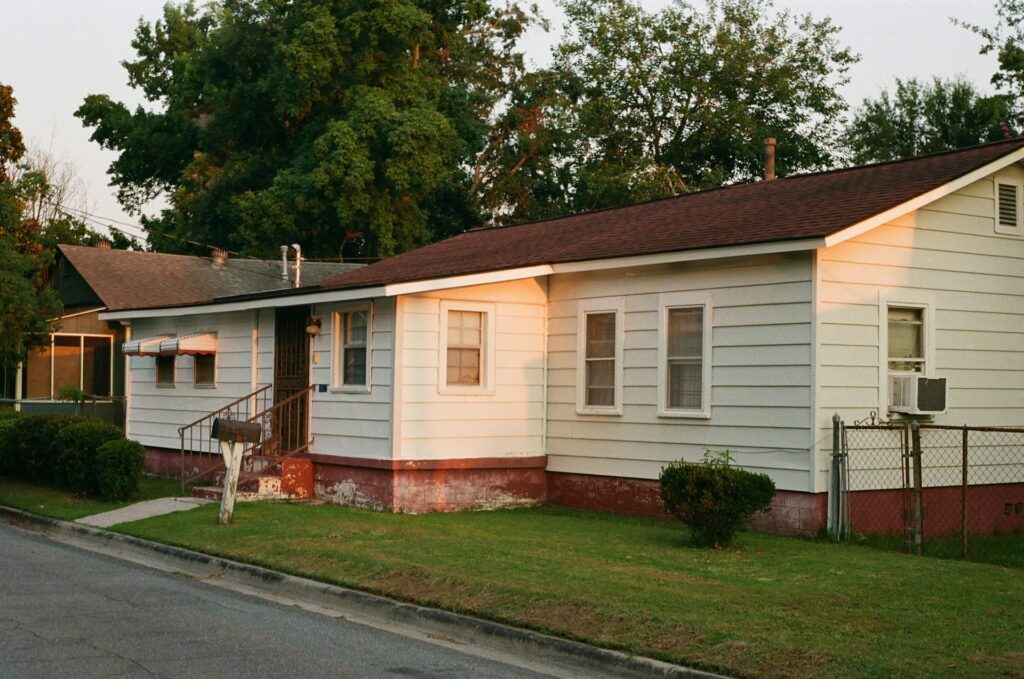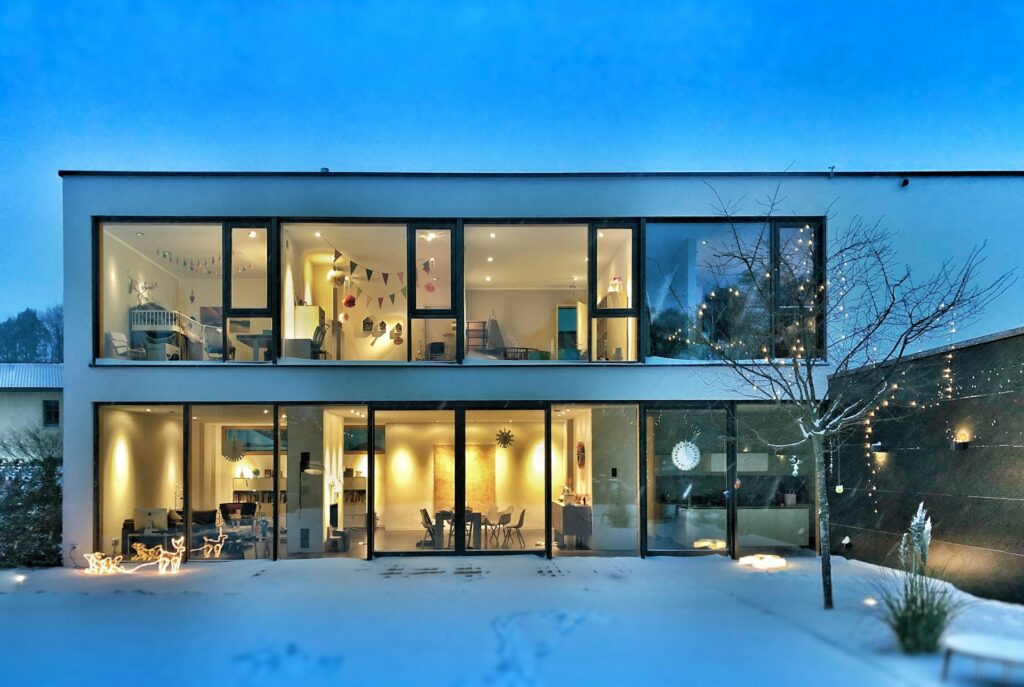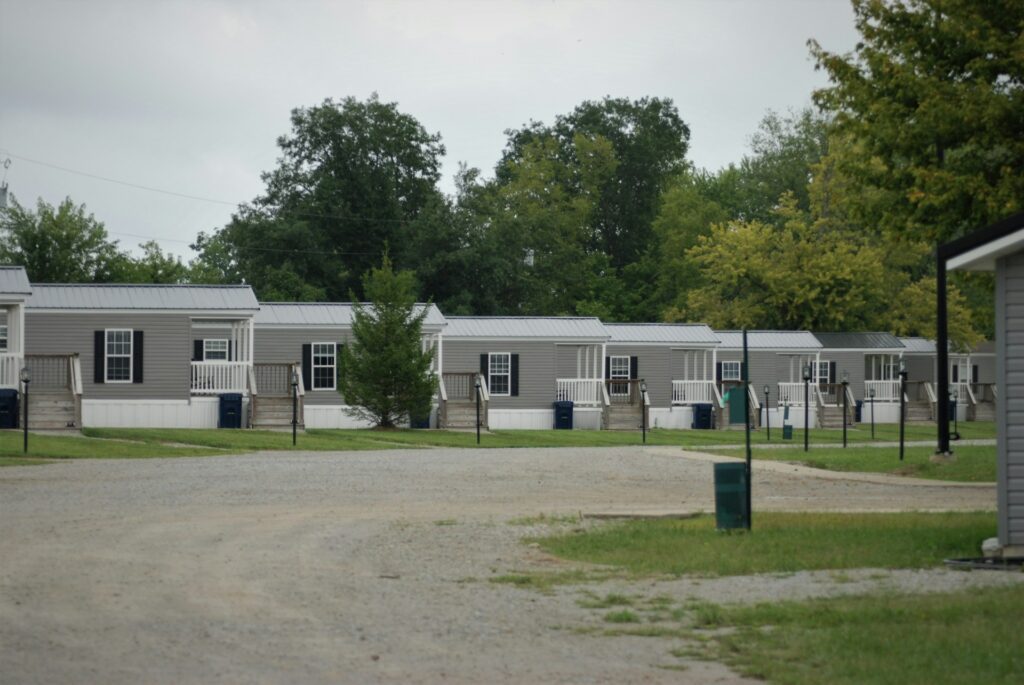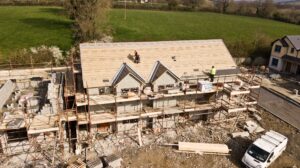
Fast-Track to Homeownership: Modular vs. Manufactured
In the realm of housing options, modular homes, and manufactured homes offer alternatives to traditional site-built houses, each with its characteristics and considerations. Understanding the differences between these two types of homes is crucial for prospective homebuyers looking to make an informed decision. This article will explore what modular and manufactured homes entail, highlighting their respective advantages and disadvantages. By delving into their construction, building codes, financing options, and other factors, we aim to provide a comprehensive overview to assist readers in determining which type of home best suits their needs and preferences.

What Are Modular Homes?
Modular homes represent a contemporary approach to residential construction, characterized by their adaptability and streamlined production processes. These homes are prefabricated structures manufactured in sections or modules within a controlled factory environment, then transported to the designated building site for assembly. Crafted to precise specifications, modular homes offer homeowners the opportunity for personalized customization to align with their specific preferences and requirements.
Constructed utilizing advanced building techniques, modular homes boast high craftsmanship and consistency throughout the manufacturing process. Skilled artisans meticulously assemble each module, ensuring quality control and adherence to industry standards. Upon completion, the modules are transported to the site and integrated to form the final dwelling, meeting the same stringent building codes and regulations as traditional site-built homes.
In terms of financing, modular homes offer similar options to conventional residences. Prospective buyers can secure mortgages from various financial institutions, including banks, credit unions, and specialized lenders, to facilitate the purchase of a modular home. Additionally, some manufacturers provide in-house financing options tailored to qualified buyers.
The advantages of modular homes are numerous. Their efficient production methods enable significantly faster construction timelines compared to traditional counterparts. Moreover, modular homes offer extensive customization possibilities, allowing homeowners to select from various floor plans, finishes, and features. The controlled factory environment ensures rigorous quality control, leading to superior craftsmanship and consistency. Modular homes are often built with energy-efficient materials and systems, contributing to reduced utility costs and environmental impact.
However, there are also considerations to bear in mind. Despite the streamlined construction process, modular homes still require adequate land and site preparation, adding to the overall project cost and duration. Transportation logistics must be carefully managed, particularly for larger or more complex designs. Additionally, while modular homes offer customization options, making alterations to the design or layout during construction may pose challenges and incur additional expenses compared to site-built homes.
In summary, modular homes present an enticing alternative to traditional site-built residences, offering a blend of efficiency, customization, and quality construction. By comprehending the benefits and considerations associated with modular homes, prospective buyers can make well-informed decisions aligned with their housing preferences and requirements.

What Are Manufactured Homes?
Manufactured homes, called mobile homes or trailers, offer an economical housing solution distinguished by specific features. Here’s an overview of the fundamental aspects of manufactured homes:
Manufactured homes are prefabricated dwellings constructed entirely off-site and transported to their designated location. Unlike modular homes typically installed on a permanent foundation, manufactured homes often rest on a steel chassis equipped with wheels, allowing for mobility if desired.
Construction of manufactured homes takes place in a factory environment utilizing assembly-line techniques. These homes adhere to federal construction standards outlined by the Department of Housing and Urban Development (HUD), known as the HUD Code. This regulatory framework governs various aspects, including design, construction, and installation, ensuring safety, durability, and quality.
Manufactured homes are subject to the HUD Code, which establishes minimum standards for design, construction, fire safety, energy efficiency, and other factors. These federal guidelines supersede state and local building codes, ensuring consistent standards for manufactured home construction nationwide.
Financing options for manufactured homes vary based on location, condition, and land ownership. Homebuyers have access to specialized lenders offering loans explicitly tailored for manufactured homes and traditional mortgage lenders.
The advantages of manufactured homes include affordability, as they are typically more cost-effective than traditional site-built homes, and widening homeownership opportunities for diverse demographics. Additionally, manufactured homes boast rapid construction times, often being completed and delivered to the site within weeks. Their mobility enables flexibility and relocation options, catering to individuals requiring frequent changes of residence.
However, there are notable considerations associated with manufactured homes. Unlike site-built homes, which may appreciate proper maintenance and market conditions, they typically depreciate over time. While some customization options are available, they are generally more limited than modular or site-built homes. Financing for manufactured homes may pose challenges, as lenders may perceive them as higher risk due to factors such as depreciation and land ownership.
In summary, manufactured homes present an affordable and efficient housing alternative with unique features and considerations. Understanding the advantages and challenges of manufactured homes can empower prospective buyers to make well-informed decisions aligned with their housing needs and preferences.

Modular Homes vs. Manufactured Homes: A Side-by-Side Comparison
When deliberating between modular homes and manufactured homes, it’s crucial to grasp the nuances that set them apart while recognizing their shared traits. Here’s a breakdown of critical factors to consider:
Cost
Modular homes generally come with a higher price tag than manufactured homes due to their superior construction quality and expansive customization options. In contrast, manufactured homes are often more affordable, making them appealing for those on a budget.
Customization
Modular homes offer extensive customization possibilities, empowering homeowners to tailor their living space with various floor plans, finishes, and features to align with their preferences. While some customization options exist for manufactured homes, they typically offer a more limited selection than modular counterparts.
Permanency
Modular homes are typically installed on a permanent foundation, akin to traditional site-built homes, imparting a sense of stability and permanence. Manufactured homes, however, are frequently situated on a steel chassis with wheels, allowing for mobility if desired, though they can also be placed on a permanent foundation.
Financing
Financing options for modular homes resemble those available for traditional site-built residences, including mortgages from banks, credit unions, and other lending institutions. Financing for manufactured homes may prove more challenging, as specialized lenders may offer loans tailored for such properties, while traditional mortgage lenders may view them as higher risk.
Appreciation
Modular homes generally appreciate over time, much like traditional site-built homes, exceptionally when adequately maintained and subject to favorable market conditions. In contrast, manufactured homes often experience depreciation over time, potentially impacting their long-term investment prospects compared to modular or site-built alternatives.
Location Restrictions
Modular homes are subject to the same zoning and land use regulations as traditional site-built homes, affording placement flexibility across various residential areas. Conversely, manufactured homes may encounter more constraints regarding placement, with some communities or neighborhoods imposing zoning regulations or homeowner association rules limiting their presence.
In conclusion, modular and manufactured homes offer distinct advantages and considerations for prospective homebuyers. Individuals can make informed decisions aligned with their housing needs and preferences by comprehending the differences in cost, customization, permanency, financing options, appreciation potential, and location restrictions.
Conclusion
In comparing modular homes and manufactured homes, each housing option presents distinct advantages and considerations. Modular homes offer higher quality construction, more excellent customization options, and potential for appreciation over time, albeit at a higher cost. On the other hand, manufactured homes provide affordability, quick construction, and mobility, although they may face challenges with financing and depreciation.
Ultimately, the choice between modular and manufactured homes depends on individual preferences, budget constraints, and lifestyle needs. Prospective homebuyers should carefully weigh the factors outlined in this article, considering cost, customization, permanency, financing options, appreciation potential, and location restrictions.
By understanding the differences and similarities between modular and manufactured homes, individuals can make informed decisions to find the housing solution that best suits their unique circumstances. Whether seeking the permanency and customization of a modular home or the affordability and flexibility of a manufactured home, there are housing options available to meet diverse needs and preferences in the ever-evolving real estate market.

Jason Somers, President & Founder of Crest Real Estate
With over 15 years of professional experience in the Los Angeles luxury real estate market, Jason Somers has the background, judgement and track record to provide an unparalleled level of real estate services. His widespread knowledge helps clients identify and acquire income producing properties and value-ad development opportunities.
Learn more about Jason Somers or contact us.



